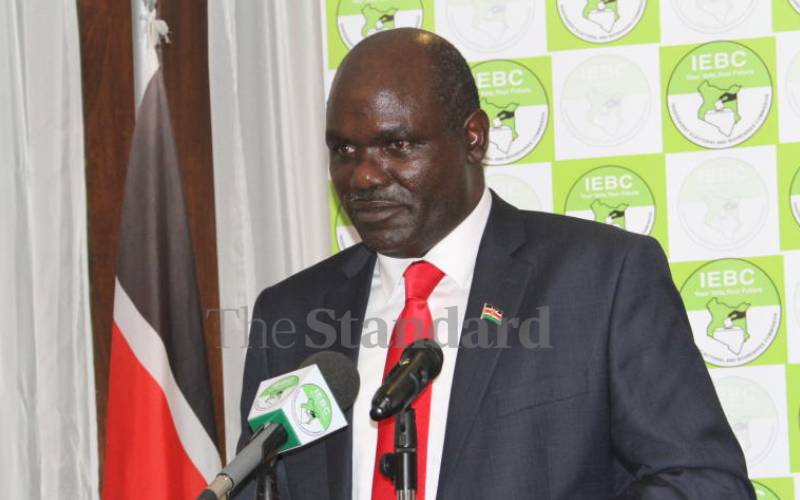×
The Standard e-Paper
Home To Bold Columnists

Independent Electoral and Boundaries Commission (IEBC) Chairman Wafula Chebukati. [Willis Awandu, Standard]
Lawmakers have succeeded in cornering the electoral agency to open the way for politicians to outgun each other financially in the next poll by revoking cap on campaign spending.